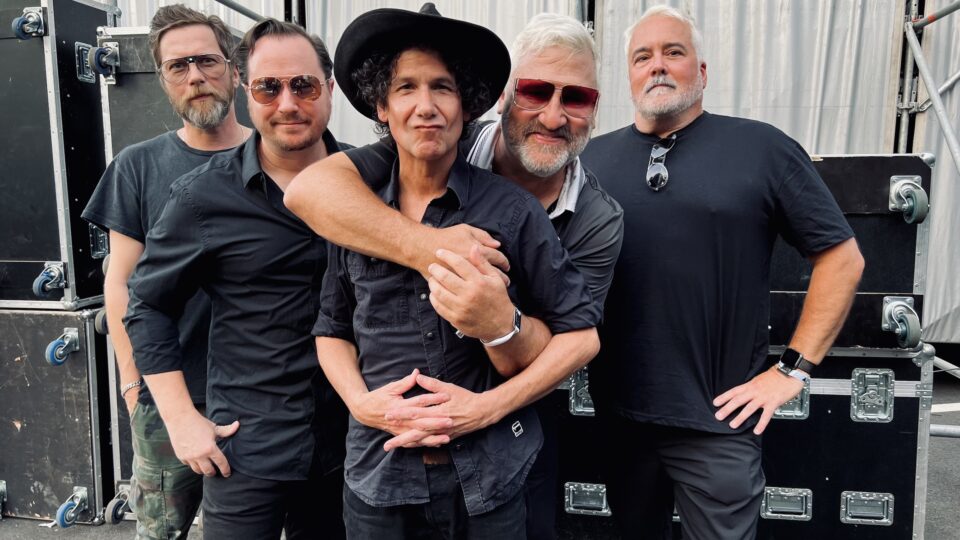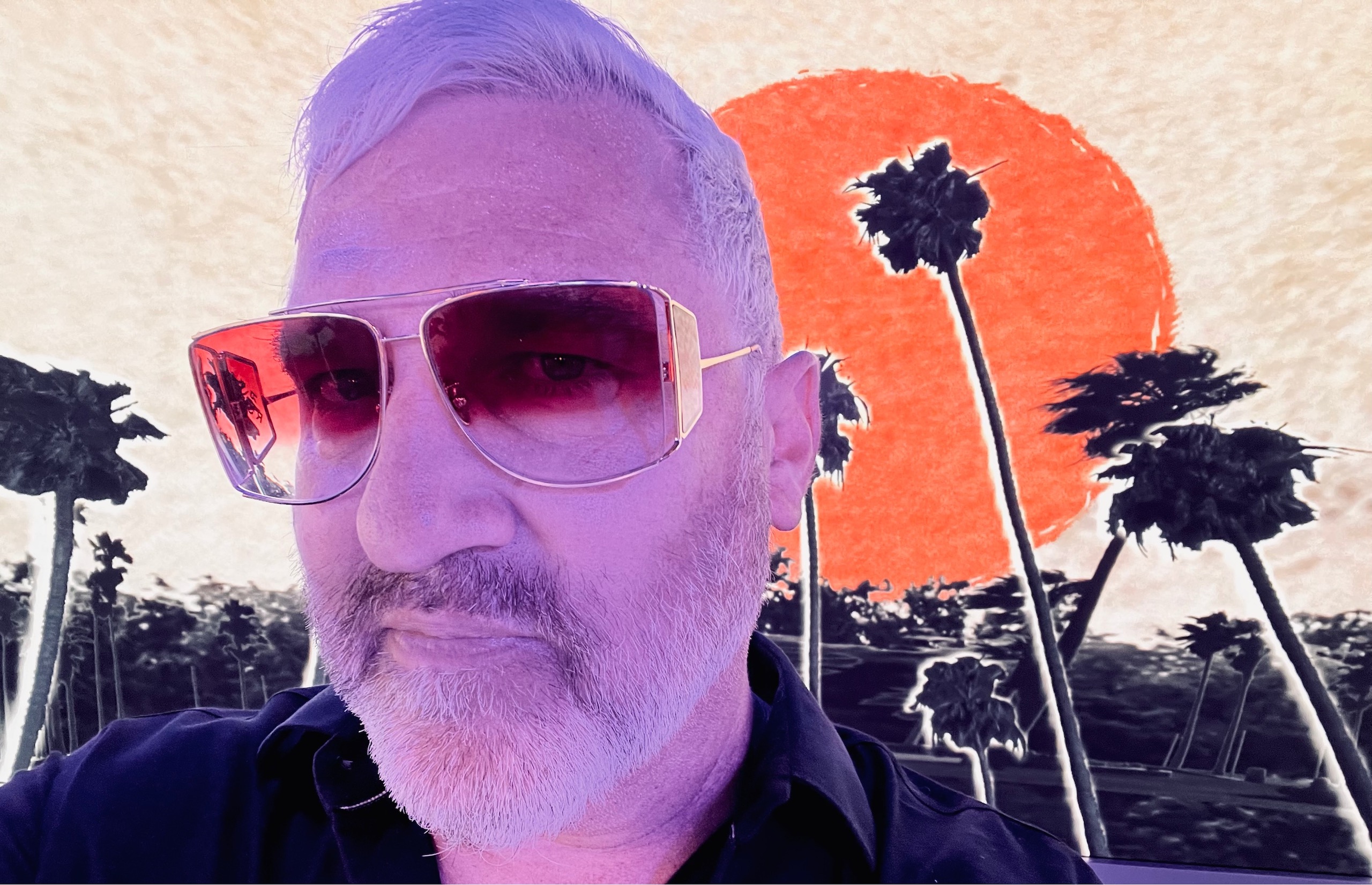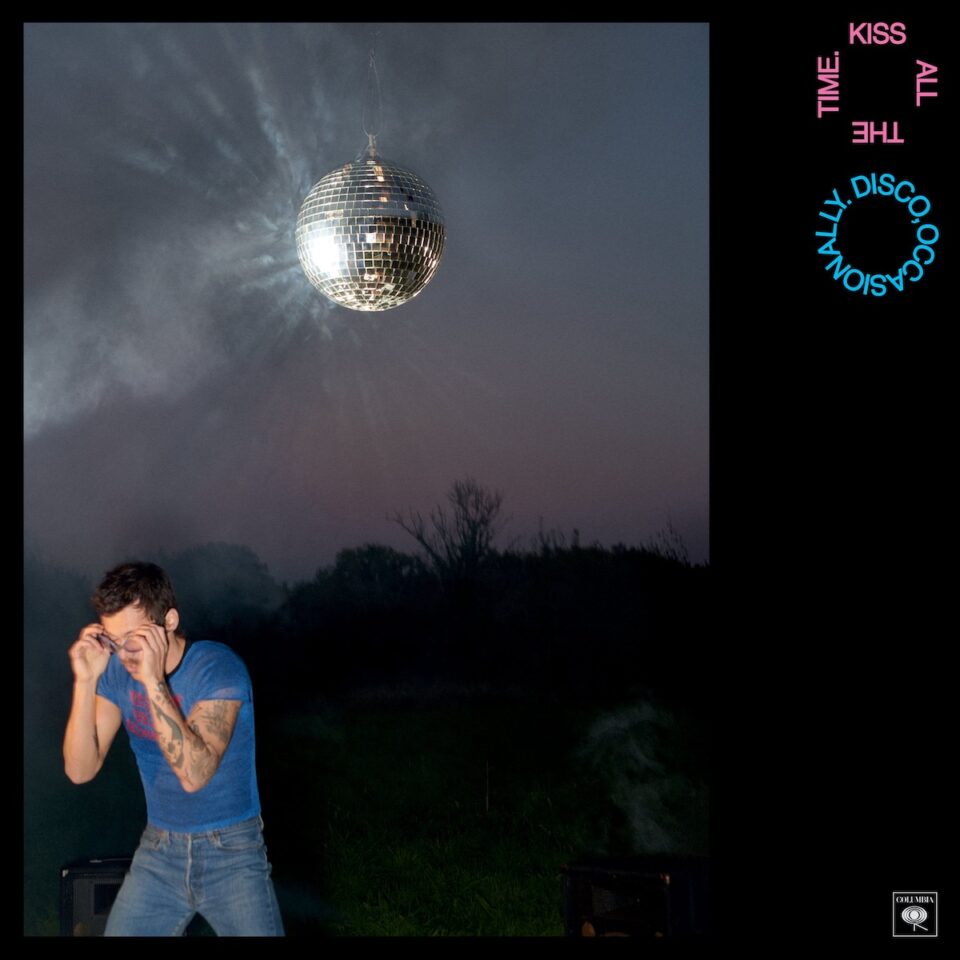“When you’re in the jungle, you have to adapt,” says Greg Dulli. How Do You Burn?, the ninth album from Dulli’s band The Afghan Whigs was actually recorded out in the desert, but his point remains pertinent just the same.
Back in early 2020, Dulli was gearing up to support the release of Random Desire, his first-ever solo album, when the onset of the COVID-19 pandemic completely capsized his tour plans. After a frustrating summer spent waiting to see if a fall tour might be feasible, Dulli abruptly shifted gears that September, reconvening his Whigs-mates to begin the creation of what would become How Do You Burn? Of course, the pandemic made it impossible for all the musicians to be in the studio together, and the fact that Dulli didn’t have any new songs also presented a problem. But Dulli and the band adapted to the situation, and out of such unpromising circumstances emerged a fantastic new album.
Co-produced by Dulli and Whigs guitarist Christopher Thorn at Thorn’s Fireside Sound studio in Joshua Tree, How Do You Burn? takes the listener on a twisting, turning, 10-song journey full of unexpected sonic vistas and desolate emotional landscapes. Several guest vocalists imprint the dark fun, including Marcy Mays (who duets with Dulli on the dysfunctional torch song “Domino + Jimmy”) and Susan Marshall (lending her bluesy wail to the propulsive “Catch a Colt”). Van Hunt lends his soulful pipes to “Jyja” and “Take Me There,” both of which also feature the presence of the late, great Mark Lanegan—a longtime friend of Dulli’s who was also his partner in The Gutter Twins and a regular contributor to Dulli’s band The Twilight Singers.
From his home in Los Angeles, Dulli spoke to FLOOD about Lanegan, the making of How Do You Burn?, and why albums should be 40 minutes or less.
I love how immersive the new album is, especially on headphones. It kind of sucks you into its world, and then 40 minutes later you come up for air going, “What the hell was that?”
When I rediscovered the 10-song, 40-minutes-or-less record, that became my mantra. I think the last four records that I've worked on have all been that formula. I remember when CDs came out and people just got more expansive and were like, “I'm gonna do 80 minutes!” But then you look at a record like Let’s Get It On, Street Survivors by Lynyrd Skynyrd, or Purple Rain, and those are all 40 minutes or less, it’s like, “Hey, play it—and then play it again!” If you exhaust the listener, that's at your peril.
“If you exhaust the listener, that’s at your peril.”
The making of this record was set in motion by the fact that you couldn’t tour in support of your solo album. But there was always going to be another Afghan Whigs record, right?
Honestly, there would've been a Whigs record in place of that solo record; the only reason I made the solo record in the first place was to have something to do while the other guys were off doing their individual things. I've been having so much fun playing with these guys that I wanted to do it again as soon as everyone was available. So here we are.
Did you already have these songs ready to go?
I had no songs, really. The first song was cut in September 2020, and the last one was cut in January of ’22.
Were you just working on one song at a time, then?
No, I worked on 24 songs and honed it down to these 10—though I didn't have 24 finished songs, because once I smell blood on a song, I go all in on it; whatever else I’m working on gets left on the side of the highway. Sometimes I'll go back and tow the car into the garage, and sometimes I’ll go back and strip it for parts. So I do have maybe another half a record's worth of a head start right now. I really liked the songs that didn't make it, but again I’m just all about keeping it tight.

Was there any kind of guiding musical or thematic concept happening?
I went into the studio to record “The Getaway,” which is the second track on the album, and while I was waiting for the engineer to get the mics up and all that stuff, I just picked up a guitar. Next thing you know, I was playing the riff to “I'll Make You See God." And I'm like, “Wow, hey, hold on a second!” Patrick [Keeler] was there to play drums on “The Getaway,” and he's like, “Where are you going, dude?” And I'm like, “I don't know, but come with me!” [laughs].
So we laid it down and ended up working on that one that day, and then came back and finished “The Getaway” the next day. It literally happened in weird ways like that; each song had its own kind of unique story of how it happened. “Please, Baby, Please” was an accident—I was working on something else, but as soon as that one started happening, everything else just took a hike. When a song is like, “Hey, I'm special. You wanna get to know me?” I'm like, “I sure do; let’s hang out!”
“Once I smell blood on a song, I go all in on it; whatever else I’m working on gets left on the side of the highway. Sometimes I’ll go back and tow the car into the garage, and sometimes I’ll go back and strip it for parts.”
Some of the guys were there with you in the studio for the recording, and some were remote. How did that work?
Patrick was in the studio and Christopher was in the studio, and then John Curley, Jon Skibic, and Rick Nelson, who are the other three main Whigs players, they were in Cincinnati, New Jersey, and New Orleans, respectively. But luckily they're all Pro Tools guys, so I was just like, “Here's the foundation of the track, here's the scratch vocal, do your thing.” We've all played together for years, and everybody kind of knows how to play with each other, so it was mostly done pretty painlessly.
Were the guest vocals recorded remotely, as well?
I was in the room with Mark Lanegan when he sang; everybody else was remote.
Lanegan sang on “The Getaway” and one other track, right?
No, Lanegan does not sing on “The Getaway”. That’s me [laughs].
“When a song is like, ‘Hey, I'm special. You wanna get to know me?’ I'm like, ‘I sure do; let’s hang out!’”
Really?
Yeah. There’s a song on the solo record where people were like, “Hey, I like what you and Lanegan did!” And I'm like, “That's not Lanegan.” But I've hung out with Lanegan enough that when I can't get Lanegan, I just do him instead [laughs]. And now I have to!
So which songs is he on?
Mark's on “Jyja” and “Take Me There." I'll freely admit to you that he would be like, “I can't hear myself on there.” But when I would say to Christopher, “Should we turn Mark up?" he would say, “Listen to this, what do you think?” I'd listen to it, and I'm like, “It sounded great!” And then he goes, “Now listen to this.” And I was like, “That doesn't sound as good.” He goes, “That’s ‘cause I took Mark out.” With that low voice of his, you can feel him more than actually hear him.
Lanegan also gave you the title for the album, right?
He did. We just talk—well, we used to talk—all the time. And years ago, when he came over to sing on Blackberry Belle, the Twilight [Singers] record, it was getting to be fall in LA; we came outta the studio and I got that thing where you just, like, shiver against the cold. He said, “What’s up?” And I said, “Here comes that weird chill.” And he was like, “Wow, can I use that?” And he did, and that became the name of his EP. So in a similar way—I can't remember exactly how it happened, but I wrote “How Do You Burn?” down after he said it. And I asked him if I could use it, and he said, “Of course.”
What was it that initially drew you guys together?
We didn't get along for many years, and that was mostly on him. He has a book of poetry called Leaving California, and the last poem in there is called “For Greg”—and just taking a quick scan of it, I'm like, “Hmm, I think that might be about me” [laughs]. That poem would probably tell you what his grind was; but once we put all that to rest and started hanging out, we hung out all the time. He was funny, smart, kind, gifted, goofy—just the best friend you could ever have, you know? Always had my back, always there for me. He’s just one of my favorite people that I will ever know.
“[Mark Lanegan] was funny, smart, kind, gifted, goofy—just the best friend you could ever have, you know? Always had my back, always there for me. He’s just one of my favorite people that I will ever know.”
The Afghan Whigs started in 1986. Did you have any inkling at all at the time that the band would still be a thing 36 years later?
I did not foresee it until I did a solo tour in 2010: John Curley, whenever I played Cincinnati, he'd always get up and jam with me. But this time he got up and jammed with me and I was like, “Hey, that was really fun, do you want to come to Chicago with us tomorrow?” So he came up to Chicago and when I introduced him, I mean, dude, it was like one of the loudest sounds I've ever heard. And that was sort of the “Hmmm” moment that I had, you know what I mean? [Laughs.]
But anyway, in 1986 I just wanted to have an apartment to myself one day. I wanted to not have a roommate; that was my one and only goal in life. I will say that, around 1992 when we put out Congregation—that was sort of the moment where I think we became The Afghan Whigs, where we forged our own sound, and we didn't sound like anybody else. And when that happened, I was like, “I can do this for a long time.” And whether that was with the band or not, I had a deep belief in myself that had become ingrained by that point. It was like, “This is me. I'm good at this. I'm going to get better. And I'm not going anywhere!” FL







